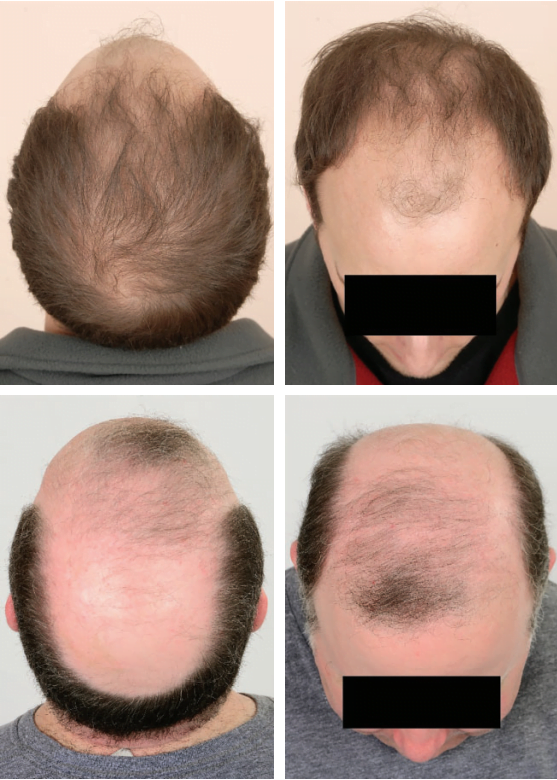Diagnosing Hair Loss
When diagnosing hair loss, a healthcare provider will typically conduct a physical examination and inquire about your dietary habits, hair care practices, and both your medical and family history. Additional diagnostic tests may include:
- Blood Test: To identify any underlying health conditions causing hair loss.
- Pull Test: The doctor will gently tug on several strands to assess the shedding phase.
- Scalp Biopsy: A sample from the scalp is examined under a microscope to check for infections affecting hair loss.
- Light Microscopy: Analyzes the hair shaft for potential disorders after trimming the hair’s base.
Treating Hair Loss
There are effective treatments for certain hair loss types, potentially reversing or slowing down the process. For instance, alopecia areata may resolve without intervention within a year. Treatment options range from medication to surgery.
Medication Options
- Minoxidil (Rogaine): Available over-the-counter in various forms, this medication is applied to the scalp. Consistent use is necessary for effectiveness, and it may take months to see results. Continuous use is required to maintain hair growth.
- Finasteride (Propecia): A prescription medication for men, taken orally. It can slow hair loss and possibly encourage new growth, but it may have side effects, including sexual dysfunction and increased prostate cancer risk.
- Other Medications: Include spironolactone and dutasteride, which are oral medications for hair loss.
Hair Transplant Surgery
For permanent hair loss, hair transplant surgery can utilize the remaining hair. The procedure involves transferring hair from a hairy part of the head to a bald area. It’s an outpatient surgery but can be painful and may require multiple sessions. Risks include bleeding, swelling, and infection. Despite surgery, hereditary hair loss may continue to progress.
Insurance typically does not cover hair transplant surgery.
Laser Therapy and Personal Hair Care
FDA-Approved Laser Treatment The FDA has sanctioned low-level laser devices for treating hereditary hair loss in both genders. Initial studies suggest an increase in hair density, but further research is needed to assess long-term outcomes.
Home Remedies and Lifestyle Adjustments Exploring different hair care techniques can enhance your appearance and confidence. Consider volumizing products, hair coloring, or styles that minimize the appearance of thinning. Wigs, extensions, or even shaving your head are viable options for managing hair loss, whether temporary or permanent.
Insurance Coverage Medical-related hair loss may qualify for insurance coverage for wigs.
Appointment Preparation Your primary care physician is your starting point for addressing hair loss concerns and may refer you to a dermatologist.
Pre-Appointment Checklist:
- Compile a record of significant stressors or life changes.
- List all current medications, vitamins, and supplements.
- Prepare questions for your doctor to maximize consultation time.
Essential Questions for Your Doctor:
- What’s the root cause of my hair loss?
- Could there be other contributing factors?
- What diagnostic tests are necessary?
- Will my hair regrow, and if so, will it have a different texture?
- What treatment path should I follow?
- Do I need to alter my diet or hair care regimen?
- Are there any specific guidelines I should adhere to?
- Is a specialist consultation advisable, and will insurance cover it?
- Are there more affordable medication options available?
- Can you provide any informational materials or recommend informative websites?
Doctor’s Inquiry Be prepared for your doctor’s questions to ensure a thorough discussion. They may inquire about the onset, pattern, and any factors affecting your hair loss.


